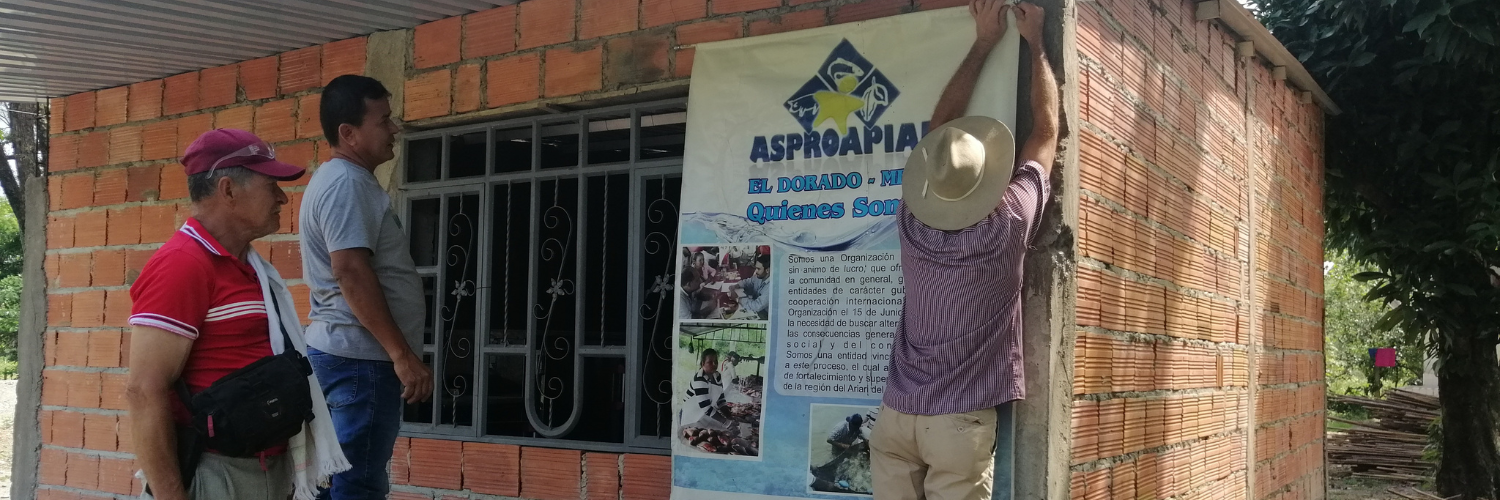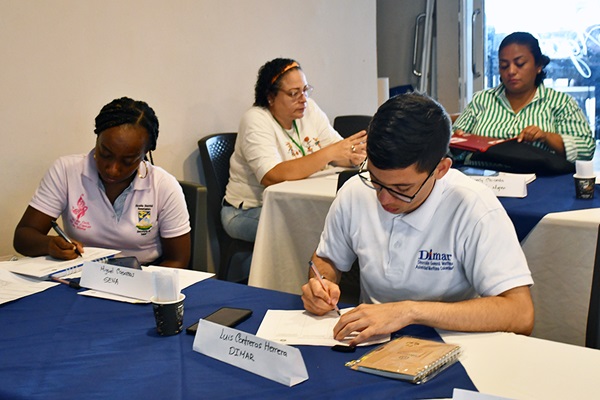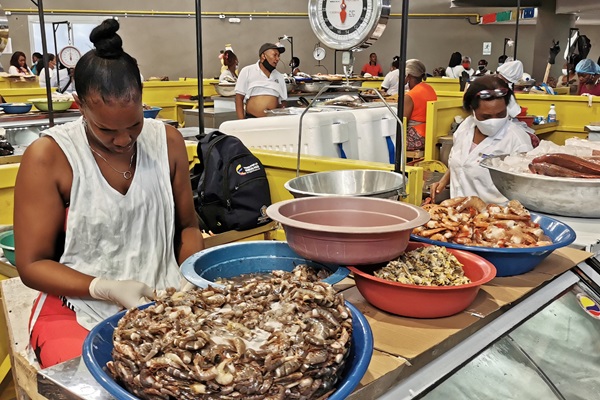
Colombia
Colombia was part of the “Sustainable Management of Bycatch in Latin America and Caribbean Trawl Fisheries” (REBYC-II LAC) and the “FAO Platoneras” projects, which served to develop the ground for the implementation of the SocPro4Fish in the country. Both project allowed identifying the key stakeholders and their role within both industrial and artisanal fisheries, as well as their limitations and threats, and highlighted the need to better understand and expand the social protection systems to the sector.
The socio-economic analysis conducted through both previously mentioned projects highlighted that most of the workers, along all the links along the fisheries value chain, are highly informal, having daily incomes and no social benefits. In fact, despite there being social protection mechanisms in the country, particularly around health, the impacts of these have not been recorded on fishery-dependent communities.
To promote economic inclusion, strengthen resilience and livelihood security of fishers, fish-workers and fish-farmers to cope with shocks, through reducing the barriers of access to social protection, the SocPro4Fish project will be implemented in Colombia. Here, it will work with artisanal fishers and other relevant stakeholders in Buenaventura, such as platoneras and piangüeras (female collectors of bivalves). In regards with the aquaculture sector, the project will work in the Meta and Córdoba districts, involving three associations of fish-farmers.
Links
Key Partners:
0c413ce0-8267-4749-90e5-67076338d043.jpg?sfvrsn=eb47b54c_1)
Work plan:
1. Evidence-based policy support through assessment of enabling frameworks between social protection and fisheries and aquaculture
- Conduct legislative, regulatory and institutional studies and analyses on the social protection of small-scale fishers, fish-workers and fish-farmers
- Conduct a vulnerability and hazard analysis of small-scale fishers, fish-workers and fish-farmers, including focus groups in three pilot sites
- Conduct an assessment of the socio-economic impact of COVID-19 on small-scale fishers, fish-workers and fish-farmers in the pilot areas and the responses and shortcomings of social protection mechanisms
- Design a pilot survey to identify the socio-economic conditions and deficiencies of existing social protection mechanisms for small-scale fishers, fish-workers and fish-farmers, to be applied in the pilot areas of the project
- Develop the methodology and guidelines for the information collected to be included in the medium term in a statistical module in the SEPEC (Colombian Fishing Statistical Service)
- Conduct an evaluation of social protection programs in the artisanal fishing and small-scale aquaculture sector, based on compliance with the social protection mechanisms stipulated in ILO Convention 188 and ILO Recommendation 202 concerning social protection floors, to assess the coverage and impact of universal social protection programs in the sector
2. Technical tools developed to enhance fishers’ capacity to respond to covariate shocks caused by climate, health, socio-economic and environment disasters affecting fishing livelihoods.
- Develop country-level roadmaps to design and implement social protection and risk management mechanisms for fisheries and aquaculture programs, consistent with government policies, in the face of climate, socioeconomic and environmental risks to project communities
- Conduct an evaluation of the information and data systems used to design and implement social protection and fisheries and aquaculture programs, and design a proposal to develop an integrated registry system
- Socialize the social protection and risk management mechanisms designed in the pilot communities of small-scale fishers and fish-farmers
3. Strengthened informal social protection providers and mechanisms to increase resilience of fishing households against covariate shocks.
- Document the functioning of the existing revolving funds in the pilot areas and their importance in the productive activity of small-scale aquaculture, including an evaluation of the socio-economic impact of the revolving funds on the productive capacity of the participants of the funds in the pilot areas
- Elaborate a proposal for a strategy to implement actions to strengthen existing revolving funds in small-scale aquaculture
- Conduct a feasibility analysis of fishery-products (fish, crustaceans and molluscs) and the status of organizations in the pilot area, in order to access public procurement processes and institutional purchases
- Design a mechanism to strengthen the commercialization of the products of the organizations linked to the project, based on seed capital that can be represented in fishery resources (fish, crustaceans and molluscs)
4. South-South and Triangular Cooperation and dissemination of results to share lessons learned on scaling-up of social protection programmes to respond to covariate shocks in the fisheries sector.
- Formation of the inter-institutional working group on social protection in small-scale fisheries and aquaculture for the project, to promote dialogue, knowledge sharing and advocacy of project results at the ministerial level
- Hold working groups and develop an action plan to advance in the implementation of public policies for social protection in the fishing sector and the incorporation of new mechanisms

Territorial table of the Interinstitutional Group for Social Protection for Fisheries and Aquaculture - GIPRO, in Buenaventura.
19/06/2023
Through the project SocPro4Fish, the Marine and Coastal Research Institute of Colombia - INVEMAR, and the Food and Agriculture Organization of...

